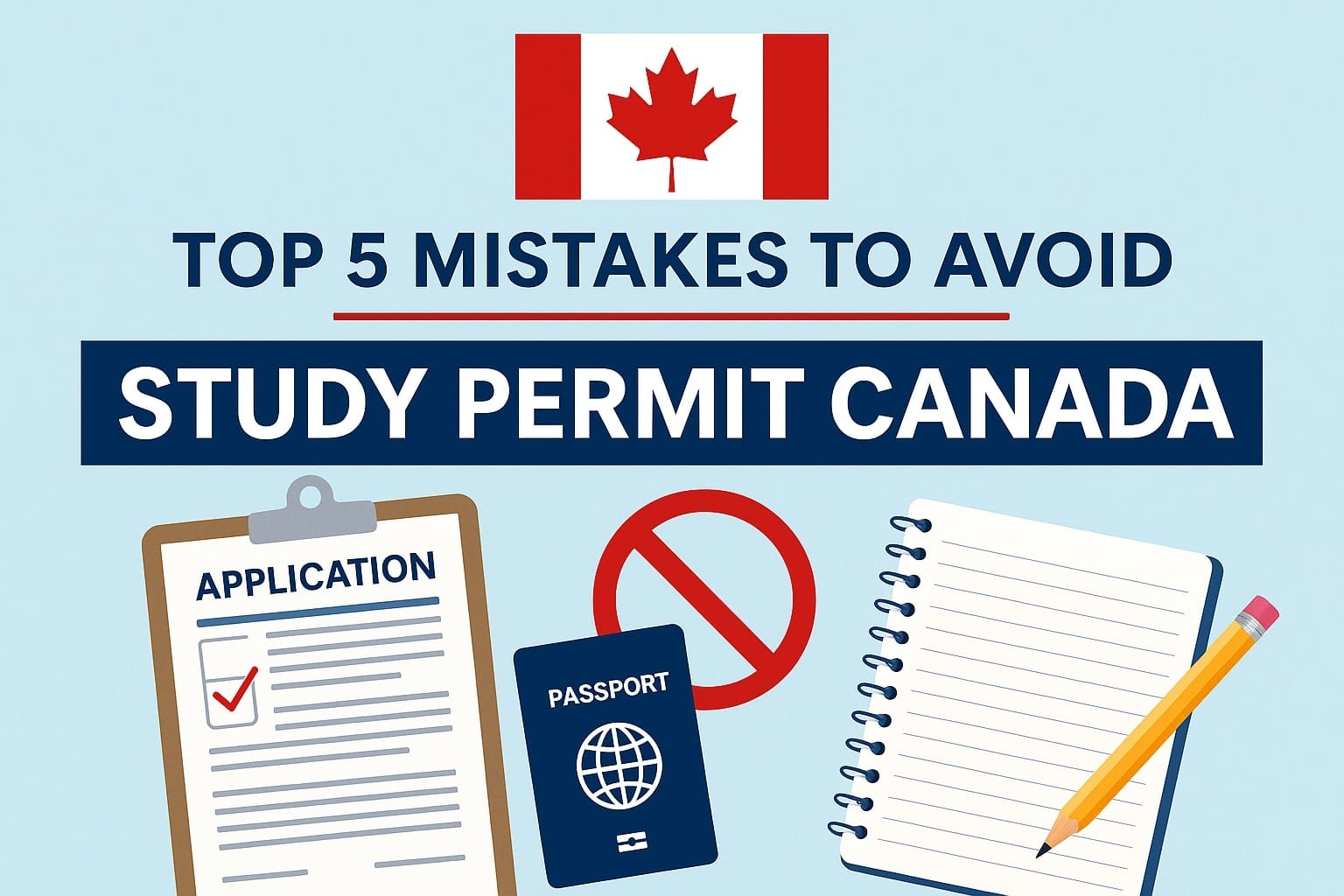Canada continues to be one of the most popular destinations for international students, offering world-class education, diverse communities, and opportunities for future growth. However, securing a Canadian study permit is not always a straightforward process. Every year, many students face delays or refusals simply because of avoidable mistakes in their applications.
In this blog, we’ll explore the top 5 most common study permit application mistakes — and more importantly, how you can avoid them to ensure a smooth and successful application process.
1. Incomplete or Incorrect Documentation
One of the primary reasons for a study permit refusal is submitting incomplete or incorrect documents. Missing paperwork like proof of acceptance, proof of identity, or financial statements can result in an automatic refusal.
Tip:
Before applying, always double-check the IRCC (Immigration, Refugees and Citizenship Canada) document checklist. Make sure every required document is clear, complete, and up to date.
2. Weak Proof of Financial Support
A strong financial profile is essential when applying for a Canadian study permit. Many applications are refused because the applicant fails to prove they can afford tuition fees, living expenses, and return travel.
Tip:
Provide detailed bank statements, scholarship letters (if applicable), or sponsorship letters. Showing additional funds beyond the minimum requirement strengthens your application and boosts the officer’s confidence in your ability to support yourself.
3. Lack of Clear Purpose and Study Plan
A compelling Statement of Purpose (SOP) is a critical part of your study permit application. A vague or generic SOP can make immigration officers question your intent.
Tip:
Explain clearly why you chose your specific program and institution in Canada, how it aligns with your past education or experience, and what your career goals are after graduation. Personalized, goal-driven SOPs always stand out.
4. Ignoring Ties to Home Country
When assessing your application, visa officers must be convinced that you will leave Canada at the end of your authorized stay. Applications that fail to demonstrate strong home-country ties are often refused.
Tip:
Highlight your family relationships, job prospects, or property ownership in your home country. Documents supporting your intention to return after your studies can significantly improve your application’s strength.
5. Waiting Too Long to Apply
Timing is crucial when applying for a study permit. Many students make the mistake of applying too close to the start of their course, resulting in unnecessary stress or missed opportunities.
Tip:
Apply at least 4-6 months before your course start date. This gives you enough time to address any unexpected delays or requests for additional documents.
Conclusion
Applying for a Canadian study permit can be a complicated process, but by avoiding these common mistakes, you can significantly increase your chances of approval. Attention to detail, early preparation, and clear communication of your goals and intentions are key to a successful application.
At Earth Overseas Immigration, we specialize in assisting students with their study permit applications and guiding them throughout their immigration journey.
Need help applying for your Canadian study permit?
Contact us today for expert advice and a stress-free application process!

